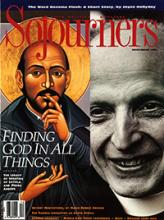In the grand tradition of folk music, Stephen Fearing is a storyteller. And, like all great storytellers, Fearing tells stories about life and lives, love and death, hope and fear. For someone not yet 30 years old, he has insights and observations many never realize in their whole lives.
Born in British Columbia some 27 years ago, Fearing moved to Ireland with his mother and stayed for 11 years. He then moved on to Minneapolis, where he lived for a couple of years before returning to Vancouver, where he resides now.
His first full collection of songs, Out to Sea, was released in 1988 to great critical acclaim. The songs reflected his time spent in Ireland (where he attended school with members of U2) as well as playing in taverns and coffee houses across Canada. Subtle traditional Celtic influences blended with the hints of artists as diverse as Hank Williams, Bob Dylan, and Tom Waits.
His latest release, Blue Line, carries with it his unique voice and superb acoustic guitar work that made the first album so memorable. However, this time out, Fearing's skills are highlighted with stronger arrangements thanks to a full band and Britain's Clive Gregson taking credit for production. The result is 10 very good songs that scrutinize human emotions with an unforgiving eye.
Read the Full Article

